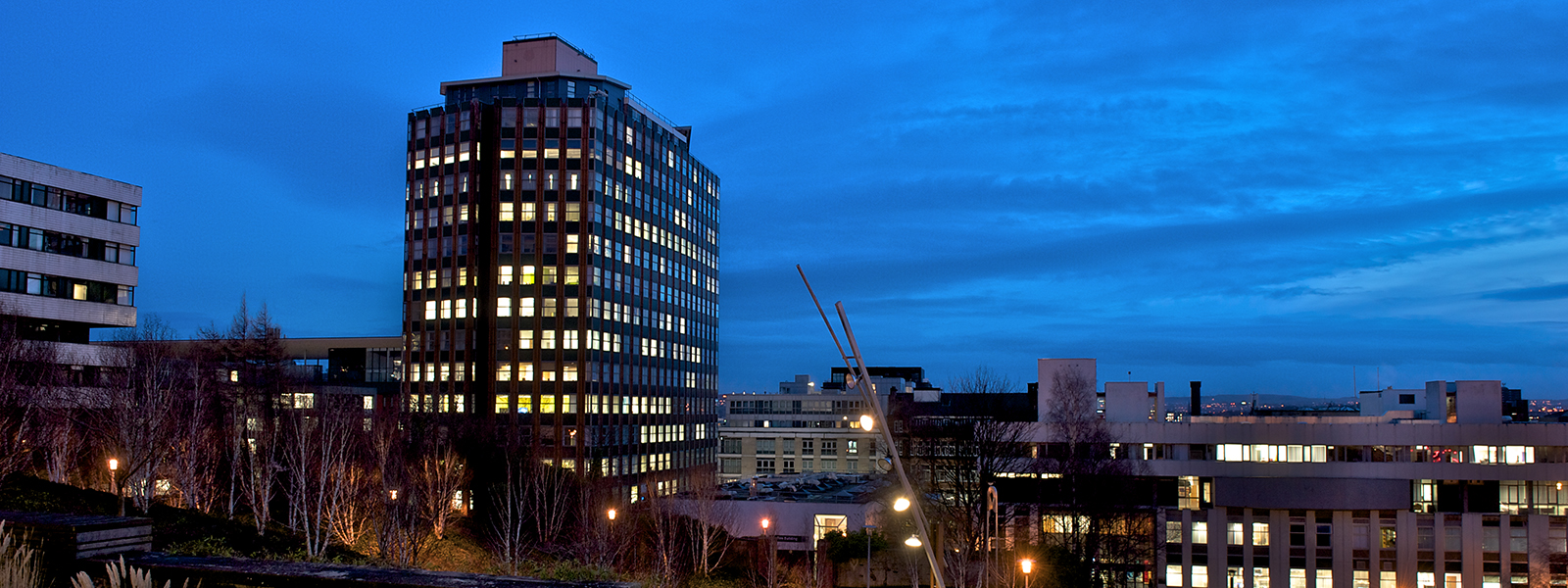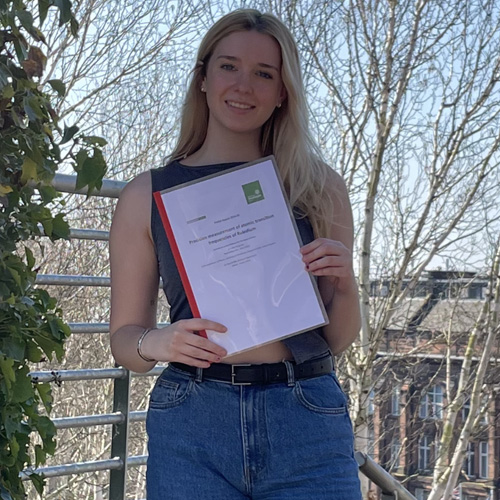
MPhys PhysicsJennifer Ferguson
Jennifer is currently studying for an MPhys in Physics. Her passion for physics began at the age of 11, inspired by her father, a physics lecturer, who showed her just how fascinating the subject could be.
While she initially aspired to study astrophysics, her time at Strathclyde has broadened her interests to include nanoscience, electromagnetism, photonics, and medical physics.

How did you decide to study at Strathclyde?
I was originally planning to do a physics course specifically on astrophysics, but I decided to do a general physics course so I would have more options in the physics world to work in. Strathclyde was close to home and in a great social area.
What do you like about your course and Strathclyde?
All the courses, including the maths and computing course, are taught by physicists. This means that the maths and the code classes are related directly back to physics, and you don’t need to try to figure out yourself how it relates to your course. Our classes are also generally quite small, meaning we all talk to each other and have a group chat with everyone to help one another. It also means that the lecturers get to know you better.
Why did you choose to study MPhys Physics?
From a young age, I loved to watch physics documentaries on space and particle physics. My father was a lecturer at a college, he tutored me in high school and would dive deeper into topics, making me want to study them more. I am interested in seeing how the world works and also how we can improve it through physics applications.
What do you like most about MPhys Physics?
I really enjoyed how many topics in physics were covered, I feel spoiled for choice. The labs, though challenging, made me feel like a proper physicist and helped me apply my knowledge and understanding. The multitude of research topics available is also great.
What are your ambitions for the future, and how do you think your time at Strathclyde will help you achieve your goals?
This summer, I am completing a summer internship with the Nanobiophotonics group at the University, where I will be creating a plankton scope with the ability to image, detect and quantify the small marine organisms’ plankton. It is important research for climate research, understanding ocean health and managing the marine food chain. This will allow me to work with state-of-the-art equipment and gain more understanding of the use of microscopes, as well as give me the experience of working in a lab full-time for 8 weeks, as I conduct it.
I plan to apply for a medical physics course at the Beatson Institute for Cancer Research after my Masters, as I'm interested in working with X-rays, MRIs and so on. I am also keeping an eye out for any PhD opportunities that may interest me.